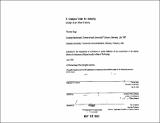A complex order for industry : design of an urban factory
Author(s)
Kaup, Thomas
DownloadFull printable version (29.41Mb)
Other Contributors
Massachusetts Institute of Technology. Dept. of Architecture.
Advisor
Fernando Perez Domeyko.
Terms of use
Metadata
Show full item recordAbstract
Whereas the separation of work from domestic life introduced during the industrial revolution has brought enormous increases in productivity through the division of labor, the cultural cost of this fracture for society is still underestimated. Some of the initial reasons for the phenomenon, namely unbearable environmental impact, inhumane working conditions and the monstrous scale of apparatus have started to lose significance through technological progress. The idea of industry as a constant state of emergency, for various reasons sometimes even embraced by old-style managements, has been recognized as an obstacle for efficiency in modem production. If this is true, what are the architectural implications? Being 'different' or 'somewhere else' is still considered an inherent characteristic of industry: architecturally, a factory-gate is still the entrance to another world. This thesis investigates an integrative approach. Rather than enhancing the outlandish, it argues for exploring a genuine industrial order with a strategy that understands size and complexity of the programmatic features of the organism as potential for opportunistic appropriation, interpretative continuation or value-driven contradiction of meaningful elements and qualities of the environment. The strategy relies on several principles borrowed from chaos theory such as fractional dimension, self-similar behavior of forms, non-linear growth, and others.
Description
Thesis (M. Arch.)--Massachusetts Institute of Technology, Dept. of Architecture, 1993. Includes bibliographical references (p. 145-149).
Date issued
1993Department
Massachusetts Institute of Technology. Department of ArchitecturePublisher
Massachusetts Institute of Technology
Keywords
Architecture.